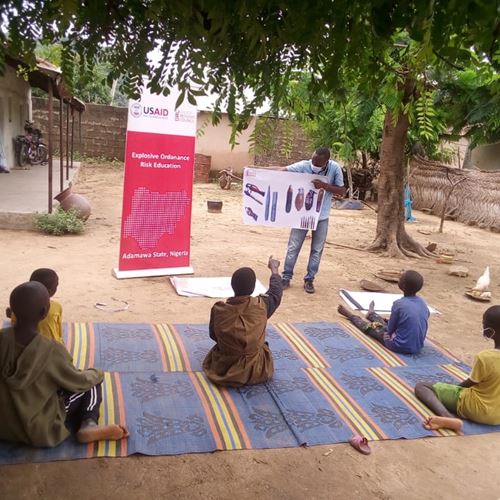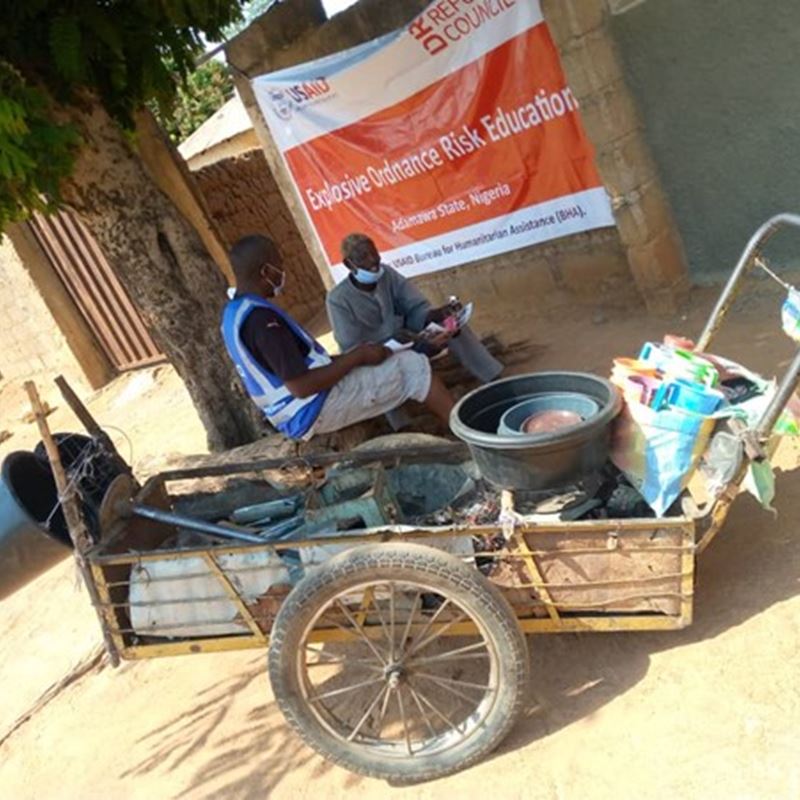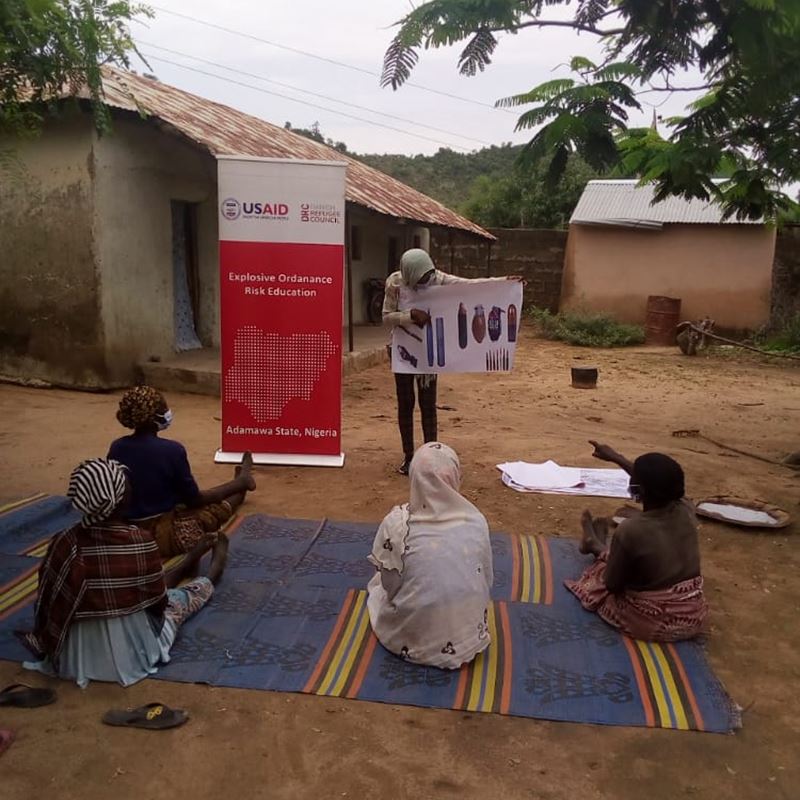News
In Nigeria, risk education about explosive ordinance aims at preventing accidents
From March until June this year, 21 persons in Nigeria have lost their lives due to unexploded ordnance. For the last many years, the number of accidents has been on the rise – a trend likely to continue, as more and more displaced people look for new areas to settle or ways of generating income. To prevent accidents, DRC conducts awareness raising sessions for at-risk populations.

Data collected between April 2021 to April 2022 by The Danish Refugee Council (DRC) showed that 45 percent of Adamawa and Borno states in Nigeria was contaminated with unexploded ordinance and in July the International Organization for Migration (IOM) recorded 15,795 new arrivals to these areas.
As newly displaced look for areas to settle and cultivate land, creating awareness about the risk of unexploded ordnance is of high importance to prevent accidents from happening. That is why DRC carries out risk education about how to behave in areas known to be littered with remnants of war, how to recognize unexploded ordnance, who to report them to and how to recognize hazardous areas.
The case of Mr. Bello Mohammed, who collects scrap metal as a source of income, shows how the lack of knowledge about explosive ordnance can have damaging – and potentially lethal – effects. While on one of his usual scrap-rounds, Mr. Bello Mohammed unknowingly came across an unexploded hand grenade. Oblivious to the danger right in front of him, he failed to take the right precautions, and when the hand grenade exploded, Mr. Bello Mohammed was significantly injured on his left hand. He could have lost his life.
Accidents such as the one of Mr. Bello Mohammed are not uncommon for scrap metal collectors, as they might mistake unexploded ordnance for metal. Being able to tell them apart, is a matter of life or death.
When Mr. Bello Mohammed recovered from the accident one month later, he took part in an Explosive Ordnance Risk Education Session (EORE) organized by DRC’s Humanitarian Disarmament and Peacebuilding program in Nigeria – he now knows how to identify threats and how to ask, should he come across anything in the future.
The Humanitarian Response Plan 2023, has identified approximately 1.2 million people in need of Mine Action interventions in 2023, of which it will target 400,000 individuals across Nigeria. Furthermore, the number of explosive incidents increased in 2021, with 293 accidents from January to the first week of November 2021 compared to 2020, where there were only 295 accidents throughout the whole year.


